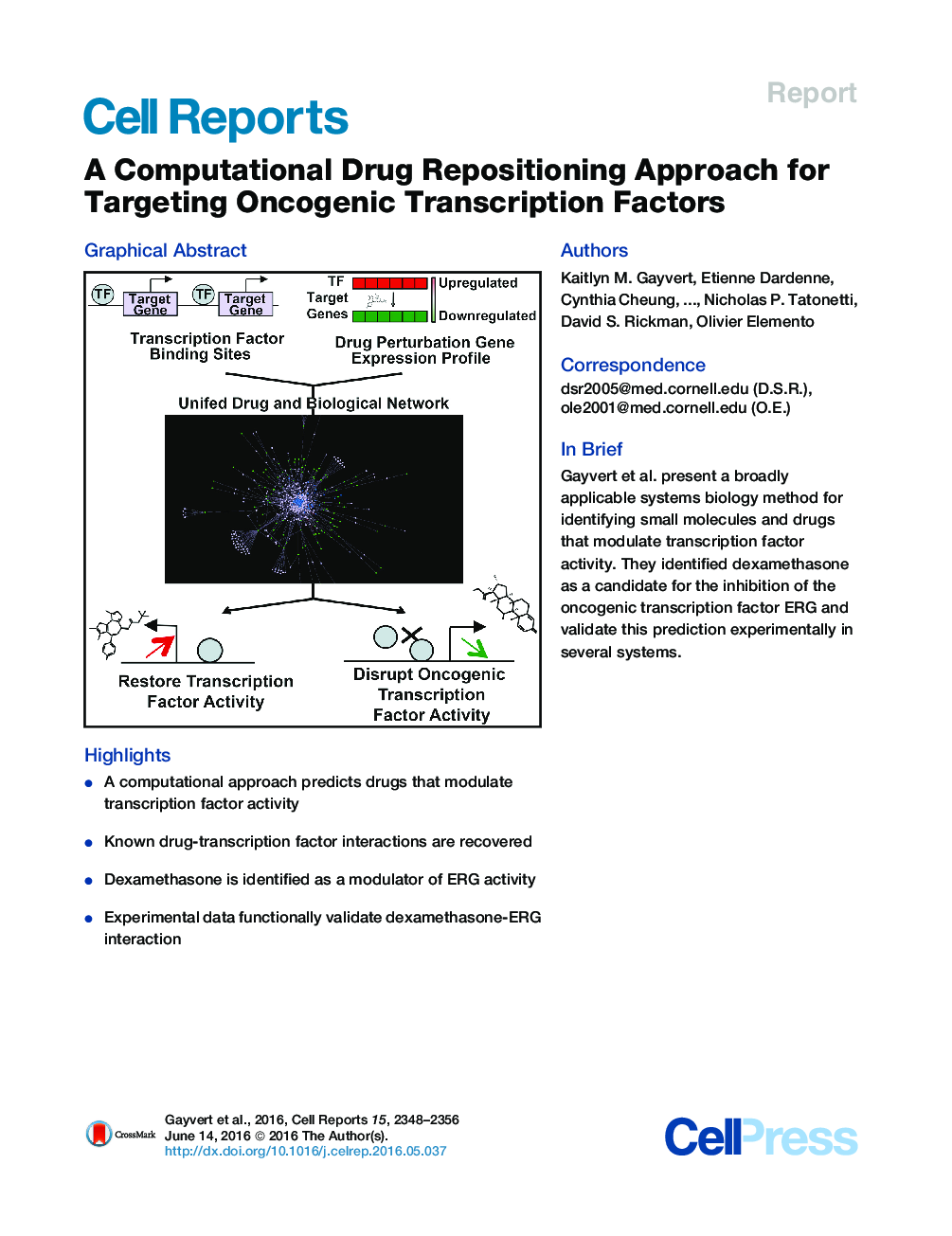| Article ID | Journal | Published Year | Pages | File Type |
|---|---|---|---|---|
| 2038956 | Cell Reports | 2016 | 9 Pages |
•A computational approach predicts drugs that modulate transcription factor activity•Known drug-transcription factor interactions are recovered•Dexamethasone is identified as a modulator of ERG activity•Experimental data functionally validate dexamethasone-ERG interaction
SummaryMutations in transcription factor (TF) genes are frequently observed in tumors, often leading to aberrant transcriptional activity. Unfortunately, TFs are often considered undruggable due to the absence of targetable enzymatic activity. To address this problem, we developed CRAFTT, a computational drug-repositioning approach for targeting TF activity. CRAFTT combines ChIP-seq with drug-induced expression profiling to identify small molecules that can specifically perturb TF activity. Application to ENCODE ChIP-seq datasets revealed known drug-TF interactions, and a global drug-protein network analysis supported these predictions. Application of CRAFTT to ERG, a pro-invasive, frequently overexpressed oncogenic TF, predicted that dexamethasone would inhibit ERG activity. Dexamethasone significantly decreased cell invasion and migration in an ERG-dependent manner. Furthermore, analysis of electronic medical record data indicates a protective role for dexamethasone against prostate cancer. Altogether, our method provides a broadly applicable strategy for identifying drugs that specifically modulate TF activity.
Graphical AbstractFigure optionsDownload full-size imageDownload as PowerPoint slide
